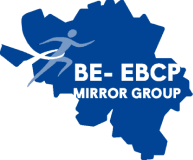Project
ORIBAR
Defining the origin of Barrett’s oesophagus by exploring a submucosal gland stem cell model
1 January 2024 - 31 December 2025
This project aims to elucidate the characteristics of the cell of origin of Barrett’s oesophagus and identify which signaling pathways mediate the emergence of Barrett’s oesophagus.
Project description
Esophageal adenocarcinoma is the most rapidly increasing form of cancer in the Western world characterized by short survival times. Its precursor lesion is Barrett’s oesophagus, which is present long before oesophageal adenocarcinoma arises. This offers an opportunity for prevention.
However, the cell of origin of Barrett’s oesophagus is unknown. This represents a huge knowledge gap and impairs the development of preventative and curative therapies. ORIBAR’s research has shown homeobox transcription factor HOXA13 is expressed in both Barrett’s oesophagus and in a fraction of oesophageal submucosal gland cells, but not in differentiated epithelial cells of the oesophagus or stomach. The submucosal glands have been proven to have positional and mutational kinship with Barrett’s oesophagus. Therefore, they likely contain its cell of origin.
Currently, the only models with oesophageal submucosal gland cells are large laboratory animals. These don’t contain human cells, are impractical, costly and unethical in their use. Therefore, ORIBAR proposes to establish and validate the first human, 2D, organoid based, model of these glands. The project proposes to test if submucosal glands contain the (HOXA13+) tissue specific stem cell of Barrett’s oesophagus by employing single cell culture and single cell visualisation techniques. If proven, the resulting identification of the cell of origin of Barrett’s oesophagus would open a clear path to understanding mucosal plasticity and early stage oesophageal carcinogenesis. The project proposes to elucidate the characteristics of this cell of origin and identify which signaling pathways mediate the emergence of Barrett’s oesophagus.
The proposed host group of Prof. Krishnadath is well-positioned for executing this project due to their access to relevant tissues and experience with handling submucosal glands, organoid technology and Barrett’s oesophagus experimental models.
Funding programme & Type of actio
Funding programme : Horizon Europe
Type of action : Marie Skłodowska-Curie Actions (MSCA)
GRant agreement number : 101109731
Duration
2 years
